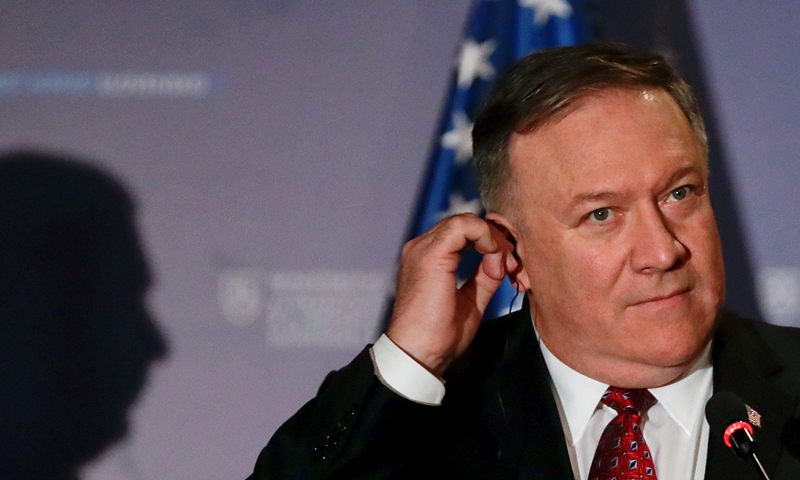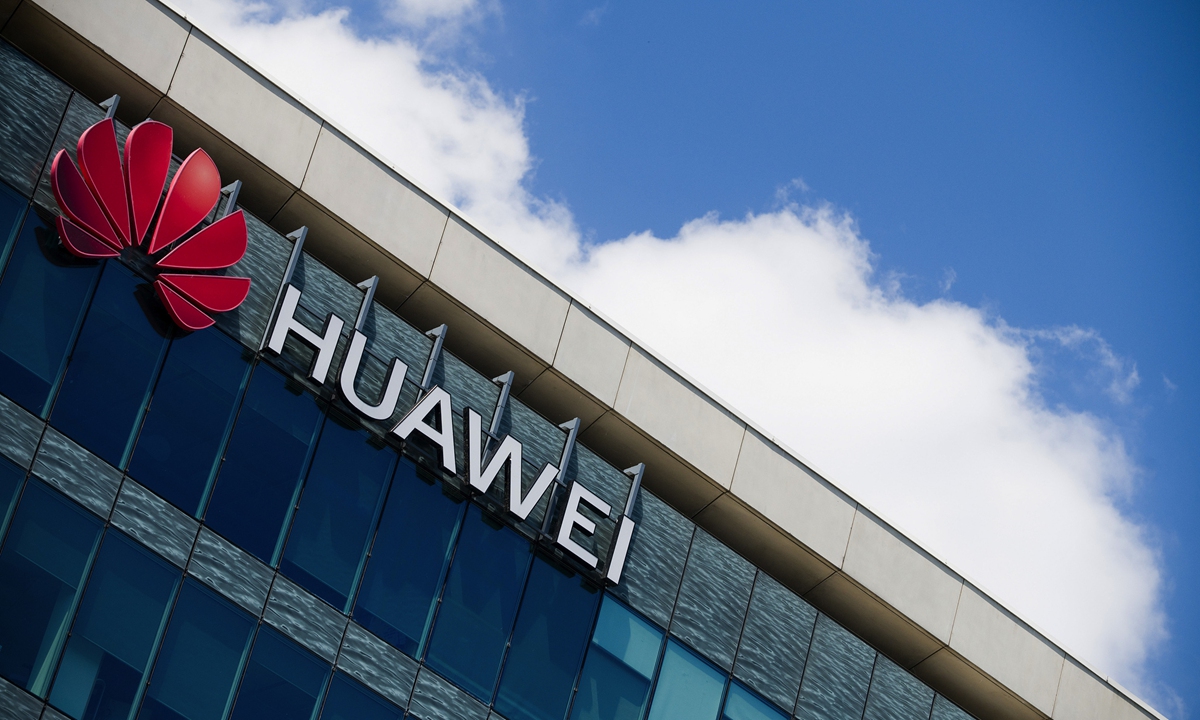Pompeo’s visit to E. Europe creates illusion of success against Huawei: observers
By GT staff reporters Source: Global Times Published: 2020/8/14 18:21:50

US Secretary of State Mike Pompeo. Photo: VCG
US Secretary of State Mike Pompeo's visit to Central and Eastern European nations this week aimed to create an illusion that his lobby has taken effect after another European country - Slovenia - joined a group of countries to elbow out Chinese telecoms giant Huawei. But analysts suggested that the Chinese telecom giant's destiny in Europe remains unknown, as major European countries' attitude, particularly of Germany's, remains open toward including Huawei in their future plans.
On Thursday, the US and Slovenia - where US First Lady Melania Trump originally came from - signed a joint declaration on 5G technology that could block Huawei from taking part in 5G network construction in the country.
On the eve of Pompeo's visit, national operator Telekom Slovenije announced a deal with Huawei's European competitor, Ericsson.
Recent data showed that Ericsson signed 100 5G contracts worldwide, while Huawei had signed 91 as of February.
However, market data suggests that Huawei still leads the global 5G equipment market. Data from market research firm Dell'Oro showed that Huawei led the global 5G equipment market in the first quarter of the year with a 35.7 percent market share, followed by Ericsson at 24.6 percent, Nokia at 15.8 percent, and Samsung with 13.2 percent.
The Chinese Embassy in Slovenia said in a statement on Thursday that Slovenia has made it clear to China that the joint declaration is not against China or Chinese companies. The embassy expects Slovenia to honor its commitments to provide an open, fair, just and non-discriminatory business environment for Chinese companies.
In addition, the statement condemned the US for violating market principles and abusing the concept of national security by implementing discriminatory and exclusive policies.
"The attempt by the US to create a 'New Cold War' trap and form cliques to contain China will not succeed, nor will it be in anyone's interest. The pain caused by the Cold War to Europe in the last century is still fresh in their minds. We believe that no European country wants a 'New Cold War'," the statement said.
Slovenia is not a large country in Europe, and not a key market for Huawei. But the Trump administration's lobbying has achieved its desired effect in Eastern European countries, as many of them wish to remain close to the US, Ma Jihua, an industry analyst and close follower of Huawei, told the Global Times.
Over the past year, Poland, Estonia and the Czech Republic have signed agreements with the US to exclude Huawei, but Ma noted that in the telecoms market, land area and population matter a lot on market value, and that means large countries in Europe - Germany, France and the UK - are key markets for Huawei as well as other telecoms providers.
For a market of about 2.07 million (about 2.5 percent of Germany's population) and an area of 20,273 square kilometers, Slovenia saw Huawei as its second most popular mobile vendor, with a 27.69 percent share in the country, surpassing that of Apple (6.26 percent), analytics website statcounter.com said.
Ma noted that Germany's attitude toward Huawei will become an indicator for smaller European countries, adding, "Germany's independent policy and ability to make independent decisions mean it will not sacrifice itself for the US," citing strong and stable China-Germany economic and political relations.

Huawei. Photo: VCG
German authorities do not consider a ban on Huawei necessary, the Frankfurter Allgemeine Zeitung newspaper reported on Tuesday. Deutsche Telekom CEO Tim Hoettges also noted that policymakers had made a conscious decision not to impose up-front bans on vendors for political reasons, Reuters reported."Pompeo wanted to tell China and Europe that the US crackdown on Huawei has been effective. This means his allies will need to pick a side between China and the US…Such a situation may leave major countries isolated in the end, as they may suffer from external and internal pressure," Cui Hongjian, director of the Department of European Studies at the China Institute of International Studies, told the Global Times.
Cui warned that Huawei's situation in Europe remains grim as the US crackdown will disrupt Huawei's global supply chain, leaving European countries in a dilemma.
Pompeo will visit Poland on Saturday, another key distribution and research and development center for Huawei in Europe.
On Friday, China's foreign ministry spokesperson said China believes the international community will be able to see the truth behind some US politicians, and expects the international community to say no to interference on 5G networks, safeguarding a fair, open and non-discriminatory business environment.
Posted in: INDUSTRIES,COMPANIES